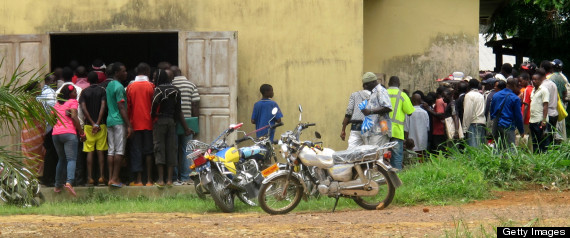By Karen Diep
Impunity Watch Reporter, Asia
MANILLA, Philippines – On Tuesday, a decision by the Philippines’ highest court delayed the implementation of a reproductive health law providing free access to contraception and family planning.

According to The Washington Post, the court voted 15-5 in favor of 10 separate petitions to stop the implementation of the Responsible Parenthood Law and pend oral arguments until June 18th.
This law requires government health centers to offer universal and free access to most forms of contraceptives to everyone, particularly the Philippines’s poorer citizens, who comprise a third of its population. Prior to the Responsible Parenthood Law, access to contraceptives was expensive and contingent upon the political affiliation of one’s local government. The law also mandates sexual education in public schools.
While advocates of the Responsible Parenthood Law believe that it should be implemented to combat poverty and maternal mortality, petitioners questioning the law’s legality welcomed the high court’s decision.
On December 29, 2012, President Benigno Aquino signed the law after 14 years of campaigning by public health and women activists groups. Edwin Lacierda, the spokeman for the President Aquino, stated that the government respects the high court’s decision and is confident about supporting the law’s merits.
The country has a population of 94 million, 80% of whom are Catholic, and one of Asia’s highest birth rates.
The Responsible Parenthood Law has received much opposition from conservative groups in the country and the Catholic Church.
“For me it’s a good sign, a victory for those who are against the law,” said Bishop Arturo Bastes of Sorsogon. According to CNN News, Bishop Arturo Bastes believed that Pope Francis, who was officially inaugurated on the same day of the court’s ruling, would be happy to hear of the delay.
According to Mellisa Upreti, a regional director at U.S. based Center for Reproductive Rights for Asia, the Filipino government made a few concessions in deference to the Catholic Church.
For instance, the law did not legalize all forms of contraceptives, including emergency forms of contraception. The Responsible Parenthood Law also contains a measure that permits private and religious-influenced hospitals, the leading providers of health care in the country, to refuse reproductive health services based upon its religious objections.
Despite these concessions, its opponents are still concerned. However, the Responsible Parenthood Law has its supporters.
Senator Miriam Defensor Santiago believes that the law is necessary to help people in the Philippines “escape the vicious cycle of poverty by giving them options on how to manage their sexual lives, plan their families and control their procreative activities.”
The court will reexamine the law in 120 days.
For further information, please see:
CNN News – Top Philippine court hits pause on divisive contraception law – 20 March 2013
BBC News – Philippine high court delays contraception law – 19 March 2013
Washington Post – Philippine top court halts contraceptives law until it hears arguments over religion, abortion – 19 March 2013


